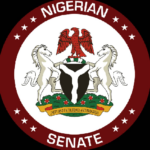The Senate, on Tuesday, said a downward review of the N10.5trn Appropriation Act 2020 had become inevitable amid the sharp drop in the price of crude oil.
It, however, said the modalities to be adopted in the budget review should be agreed to by both the legislature and the executive.
This followed consideration of a report of Senate Joint Committee on Finance, Appropriations, National Planning and Petroleum Resources (Upstream) on the urgent need to monitor and examine the current economic reality caused by sharp drop in the price of Crude Oil, the emergence of deadly coronavirus and the uproar within the OPEC Community.
The committee, chaired by Senator Solomon Adeola (APC, Lagos) was constituted last week to interface with the relevant stakeholders in the Executive and Business Community with the intention of bringing out suggestions, solutions and way forward out of the present economic reality.
Citing the committee’s findings, the lawmaker said the effects of the sharp drop in the crude oil price would be felt from May, June and July.
The report therefore recommended that, “Downsizing the Appropriation Act 2020 as passed by the National Assembly is inevitable, but the modalities to be adopted in the review of the budget shall be as agreed to between the Federal Ministry of Finance, Budget and National Planning and the joint committee of the Senate.”
The report also said the revenue-generating agencies must be alive to their responsibility in line with the Fiscal Responsibility Act passed by the National Assembly and other relevant laws of the National Assembly.
Senator Adeola said the committee, at its inaugural meeting with the Finance Minister, Zainab Ahmed, discussed issues bordering on the current Appropriation Act 2020; cost of production of a barrel of crude oil; loss of revenue as a result of gas flaring which runs into several billions of dollars; devaluation of Naira; removal of oil subsidy.
He said, “The Joint Committee looked at the issues discussed from two (2) angles; the short and long term solution.
“The short term solution is to address the sharp drop in the crude oil price which is creating difficulties in funding the 2020 Appropriation Act as passed by the National Assembly.
“The long term solution discussed is the need to consider and pass the Petroleum Industry Bill (PIB), which is yet to be laid before the National Assembly. This will address the issue of cost of production and Gas flaring where the country’s resources is going down the drain and other issues that might affect the petroleum sector.”
Experts, according to the report, believed that it is time Nigeria should start to look beyond oil as a major source of revenue and ensuring proper diversification of the economy.
“Experts noted that our shallow policy in Agriculture is responsible for our dependency on oil as our major source of income. The Government should show more commitment in returning the country as a major leader in agricultural produce both within and outside the African Continent e.g Nigeria was the leading producer of cocoa but as over taken over by Ivory Coast as number one producer, since the advent of crude oil,” it said.
On the issue of budget implementation, the report said the federal government had commenced relevant releases ranging from Personnel and Overhead Cost while Capital releases for the first quarter commenced by second week in March with the sum of N340 billion to be released to the critical sector.

 Join Daily Trust WhatsApp Community For Quick Access To News and Happenings Around You.
Join Daily Trust WhatsApp Community For Quick Access To News and Happenings Around You.

